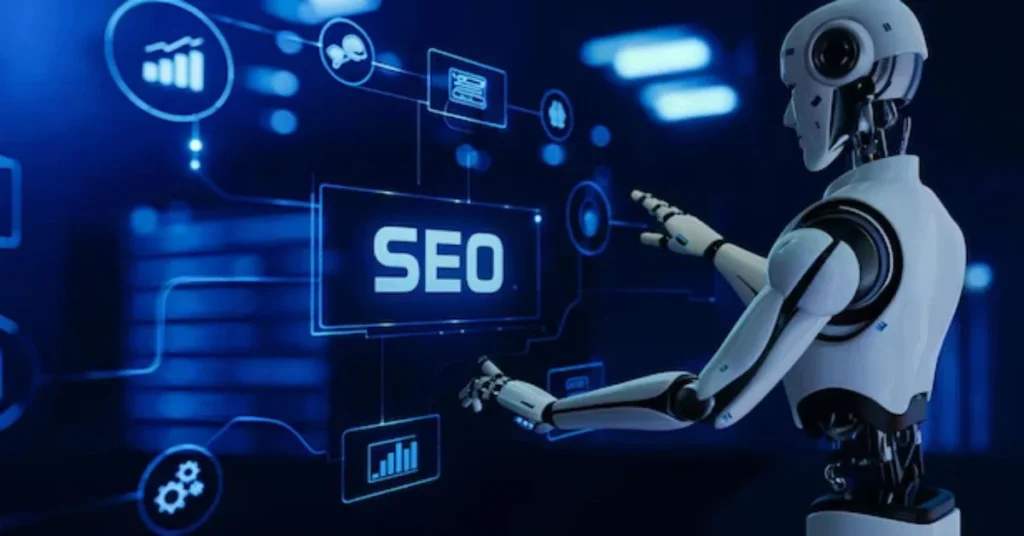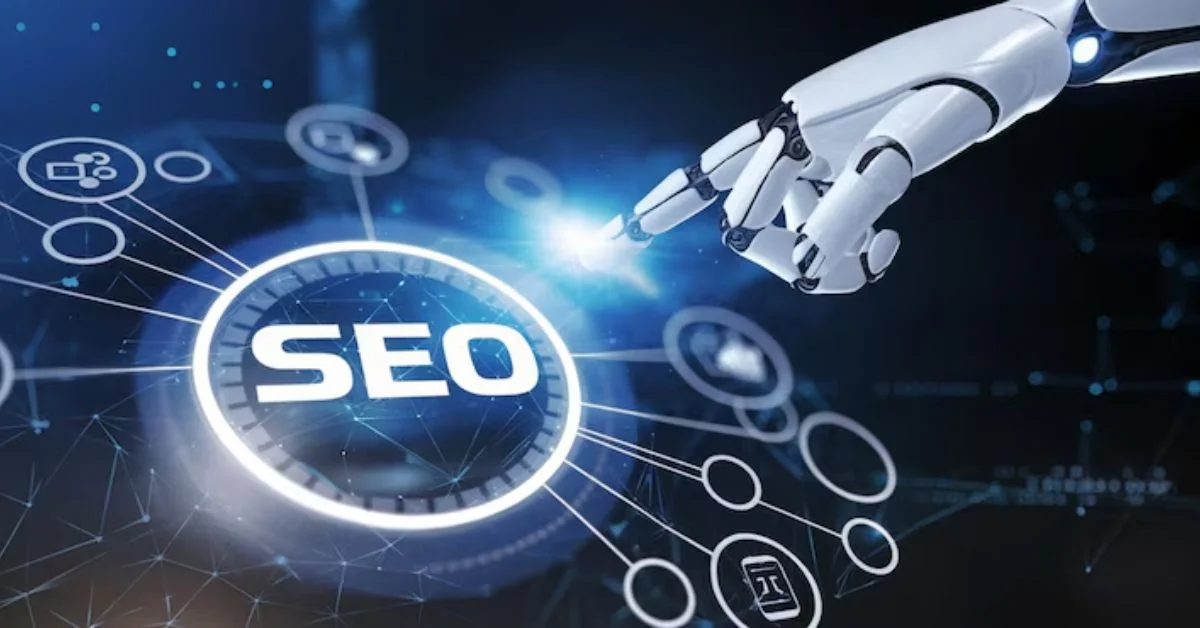In the ever-evolving arena of digital marketing, agility and scalability have moved from buzzwords to necessities. The web never sleeps, and neither can the strategies that keep a brand visible in a saturated marketplace. At the convergence of this dynamic environment stands an emerging powerhouse: AI-powered SEO tools. These technologies are not only changing how content is optimized but fundamentally reshaping how companies implement agile solutions at scale.
The modern SEO landscape is no longer about inserting the right keywords in the right places. It’s about understanding search intent, adapting to real-time algorithm updates, producing quality content at speed, and delivering insights that inform an entire digital ecosystem. AI SEO tools are making all of this possible in ways that are smarter, faster, and more efficient than ever before.
The Evolution of SEO: From Manual to Machine Learning
Search engine optimization has historically been a labor-intensive field. From keyword research and backlink tracking to meta-tag optimization and performance audits, SEO demanded constant vigilance and technical expertise. While many of these tasks remain essential, AI tools have brought automation and intelligence into the process.
Today, advanced platforms use natural language processing (NLP), machine learning, and predictive analytics to:
- Identify and cluster relevant keywords based on search intent.
- Analyze competitor content in real time.
- Generate optimized meta descriptions and titles.
- Detect and flag technical SEO issues across thousands of pages.
- Forecast traffic trends and ROI.
This shift enables marketing teams to focus on strategy and creativity while offloading repetitive and analytical tasks to machines.
Integrating AI SEO Tools in Agile Marketing Workflows
Agile marketing emphasizes iteration, collaboration, and responsiveness. Teams work in sprints to test, learn, and optimize quickly. AI SEO tools naturally align with this methodology by providing:
- Real-time Data: Tools like Clearscope and MarketMuse analyze content relevance instantly, enabling teams to adapt faster.
- Sprint-friendly Reporting: Platforms such as Semrush and Ahrefs offer digestible dashboards for weekly or biweekly reviews.
- Collaborative Workspaces: Tools like SurferSEO integrate with CMS platforms and allow multiple contributors to work on optimization simultaneously.
This integration empowers even small teams to manage enterprise-level SEO operations. Marketers no longer have to wait on quarterly audits; they can tweak and test continuously.

Scalability: From Startups to Enterprises
One of the most transformative aspects of AI SEO tools is their scalability. Startups can punch above their weight with sophisticated insights, while enterprises can standardize and automate strategies across massive content inventories.
Key scalable features include:
- Content Brief Generators: AI tools can create outlines based on top-ranking content, saving hours of research.
- Bulk Optimization: Platforms like PageOptimizer Pro enable changes to thousands of pages simultaneously.
- Automated Link Building: AI-driven outreach systems suggest link opportunities and automate pitches.
These capabilities eliminate bottlenecks and enable consistent optimization across multilingual sites, product catalogs, and blog networks.
Key Players in the AI SEO Landscape
The marketplace for AI SEO tools is growing rapidly, with several platforms setting the standard:
- SurferSEO: Known for content auditing and real-time scoring.
- Clearscope: Focused on semantic relevance and keyword coverage.
- Frase.io: Combines research, outline generation, and content scoring.
- INK Editor: Uses NLP and proprietary scoring to guide writers.
- BrightEdge: Offers an enterprise SEO platform with AI-powered recommendations.
Each of these tools brings unique features, but they all contribute to the broader trend: making SEO a data-driven, scalable process that supports agile teams.
AI and the Content Lifecycle
AI doesn’t just assist in optimization—it redefines the entire content lifecycle. From ideation and creation to optimization and repurposing, machine learning adds value at every stage:
- Ideation: AI tools scan trends, questions, and gaps in content to suggest new topics.
- Creation: Generative AI, like GPT-powered systems, can draft first versions of articles, later refined by human editors.
- Optimization: On-page suggestions, internal linking structures, and readability checks are automated.
- Repurposing: Tools identify high-performing content and recommend new formats, such as turning a blog into a video script.
This end-to-end integration makes content strategy more cohesive, measurable, and impactful.
Challenges and Considerations: AI SEO tools
While the advantages are substantial, integrating AI SEO tools isn’t without challenges:
- Over-reliance: Blind faith in AI suggestions can lead to generic or keyword-stuffed content.
- Bias and Inaccuracy: NLP models are only as good as their training data and can perpetuate inaccuracies.
- Data Privacy: Feeding sensitive information into cloud-based AI tools requires rigorous compliance checks.
- Skill Gap: Marketers must understand both SEO fundamentals and AI tool functions to use them effectively.
Training and strategic oversight remain crucial. AI augments human effort, but it cannot replace human insight, especially in areas of tone, empathy, and ethical judgment.
Metrics and Performance Evaluation
One of the advantages of AI SEO tools is the precision with which they can track performance. Advanced platforms allow teams to:
- Monitor keyword rankings daily.
- Attribute traffic changes to specific content updates.
- Score content on originality, engagement, and topical depth.
- Forecast ROI based on historical and predictive models.
This level of granularity allows for smarter decision-making and budget allocation, helping organizations optimize not just content but the entire marketing funnel.
Case Studies: Success at Scale
Case 1: A Global SaaS Brand
A SaaS firm used Frase and SurferSEO to overhaul its knowledge base. Within three months, organic traffic doubled, and support ticket volume dropped by 20% as users found answers more easily.
Case 2: An E-commerce Platform
An e-commerce brand employed BrightEdge to automate product page optimizations across 30,000 SKUs. Organic sales increased by 17%, with a 25% drop in paid acquisition costs.
Case 3: A Health Media Startup
Using Clearscope and Jasper AI, a startup scaled content production from 10 to 60 posts/month without expanding its editorial team, growing its readership by 300% in six months.
The Future: Beyond Optimization
AI SEO tools are evolving beyond traditional boundaries. Future iterations may include:
- Voice Search Optimization: AI systems will tailor content to voice assistants and conversational queries.
- Visual SEO: Optimizing for image and video search using AI tagging and content analysis.
- Personalized SEO: Content tailored to user personas based on real-time behavior and preferences.
- Autonomous SEO Agents: Bots that independently optimize content, track performance, and recommend changes.
These trends point to a future where SEO is a dynamic, real-time system integrated deeply into product development, customer service, and brand strategy.
Conclusion: A New Era of Marketing Intelligence
AI SEO tools are not just enhancing digital marketing workflows; they are redefining what is possible. By enabling real-time insights, scalable solutions, and agile implementation, they align with the needs of today’s fast-paced, hyper-competitive business landscape.
For teams willing to invest in learning and integration, these tools offer not only a competitive advantage but a strategic overhaul. They turn SEO from a reactive checklist into a proactive engine for growth.
As businesses increasingly prioritize agility, scalability, and personalization, AI SEO tools stand ready not as assistants, but as indispensable collaborators in shaping the future of digital marketing.
For more information, click here.









